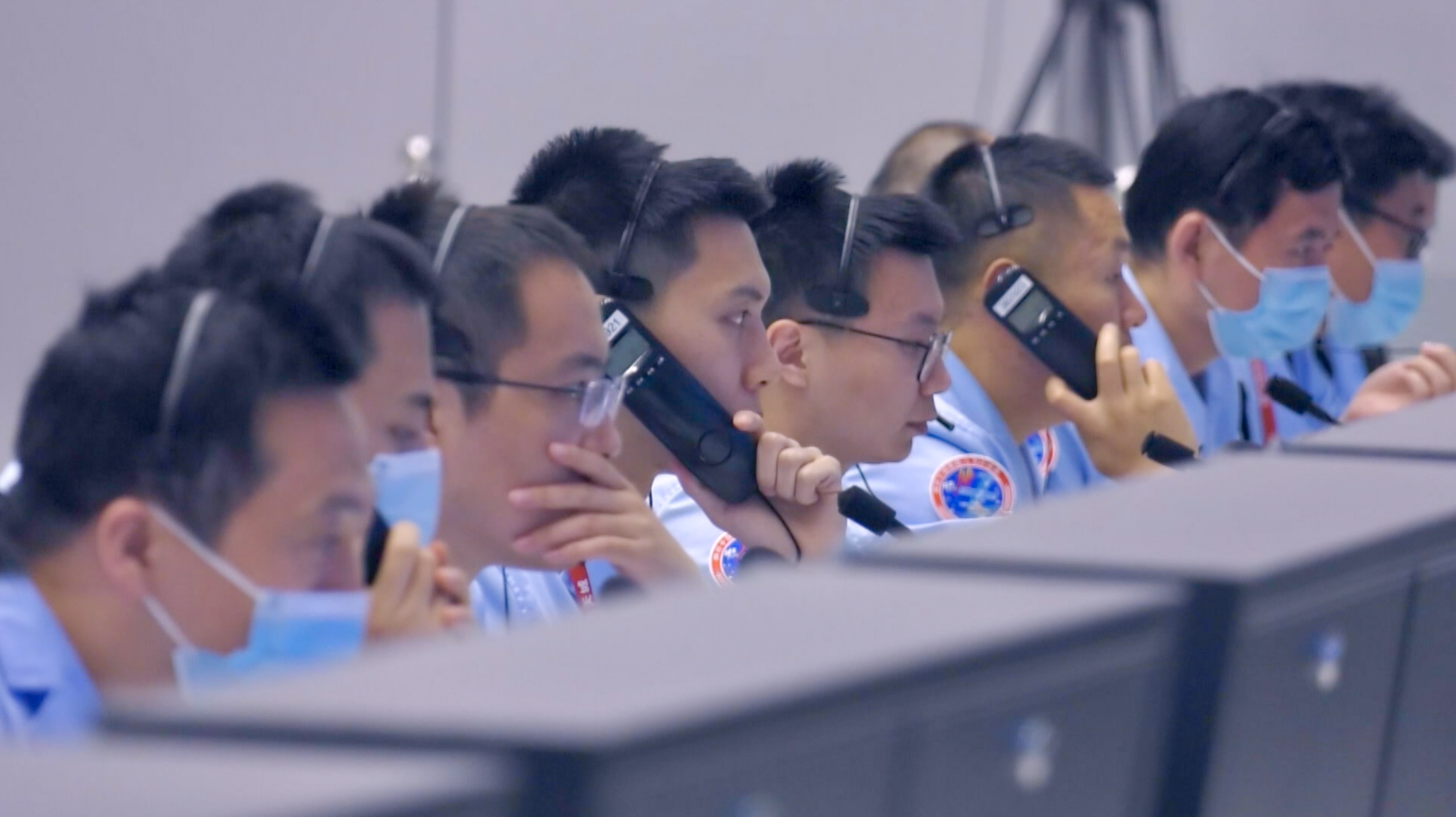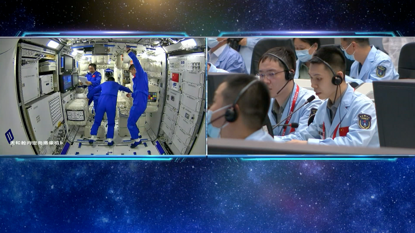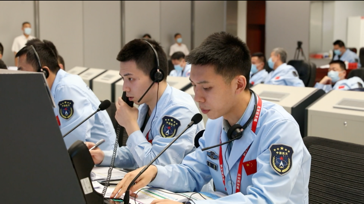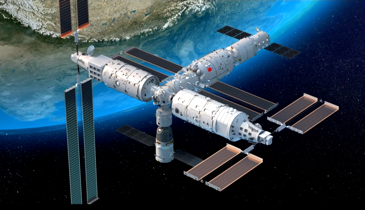03:03

CGTN has a special series that takes a closer look at how the Beijing Aerospace Control Center, known as BACC, operates the command and information exchange center for China's manned space program and deep space explorations to ensure every aspect of space missions runs smoothly.
Its ground control team, one of the many important units at the center known as "Beijing, copy" after the famous phrase used for directing space missions, oversees a crucial element of the command center's operations. Its chief operator Gao Jian shared the details of the team's job with CGTN.

The BACC ground control team communicates with astronauts aboard China's space station. /CMG
The BACC ground control team communicates with astronauts aboard China's space station. /CMG
"My team is called 'Beijing, copy.' We are mainly responsible for the control and command over all working systems, like those on rockets, spacecraft, the space station, and the launch and landing sites," said Gao.
He said the systems' information and status are reported to the Beijing center, which will coordinate with all sides to implement a pre-arranged plan and that their work involves pushing forward the mission.
Gao has been involved in all major tasks related to building China's space station. Being on the ground control team is high-pressure because each command from the ground control team affects the mission's progress.
"In other words, it decides the success of the mission. So, there is zero tolerance on errors in instructions and commands. We could be nervous, but it does not mean we will show that because we've had a rigorous training and tests," he said.
"Only those who can turn responses and judgment of various situations into instinct can get on in the team."

'Beijing, copy' carefully receives and sends commands during missions. /CMG
'Beijing, copy' carefully receives and sends commands during missions. /CMG
Gao's team created a standardized operations manual for manned missions based on their experience.
This proved very useful, particularly during the intensive missions of 2022, which saw the launch of two lab modules and their transpositions. The T-configuration of the space station was completed, reflecting hours of work by the ground control team.
Gao said everyone would likely pay great attention to the few hours for the launch, the rendezvous and docking, but a lot of research, key technology breakthroughs, designing and planning went into the success of the projects.
"So many statuses need to be confirmed, and much coordination needs to be done," he said.

The BACC ground control team is involved in all key space missions, like the rendezvous and docking and the transpositions of China's space station modules. /CAS
The BACC ground control team is involved in all key space missions, like the rendezvous and docking and the transpositions of China's space station modules. /CAS
And it's not just China's space station that's in focus. The country's plans for lunar and Mars explorations mean the team must create and oversee unique control and command centers. The ambitious projects boost camaraderie and cooperation within the team.
"My colleagues in the center would support each other at this time. They would take cooperation very seriously and carefully. Such rapport makes us feel reassured," he said.
The young scientist hopes that in future space missions, whether manned lunar landing, interplanetary travel, or solar system marginal exploration, China's aerospace will carry out those difficult tasks based on schedules and move forward successfully, one after another.
"And I know these achievements will be closely related with the efforts of every one of us," he said.